Composting is one of the best things you can do to improve your garden soil, but there are a few things to avoid composting from your garden and flowerbeds.
It’s no secret that plants can quickly deplete your raised bed and garden soil. As plants grow, they use many nutrients and organic matter within the soil. If you don’t replenish these resources, your plants will start to suffer. And the lack of nutrients only gets worse year after year.
That’s where compost comes into play. Compost is the result of organic matter that has broken down. It’s packed full of nutrients and resources that plants and flowers need in order to grow healthy and strong.
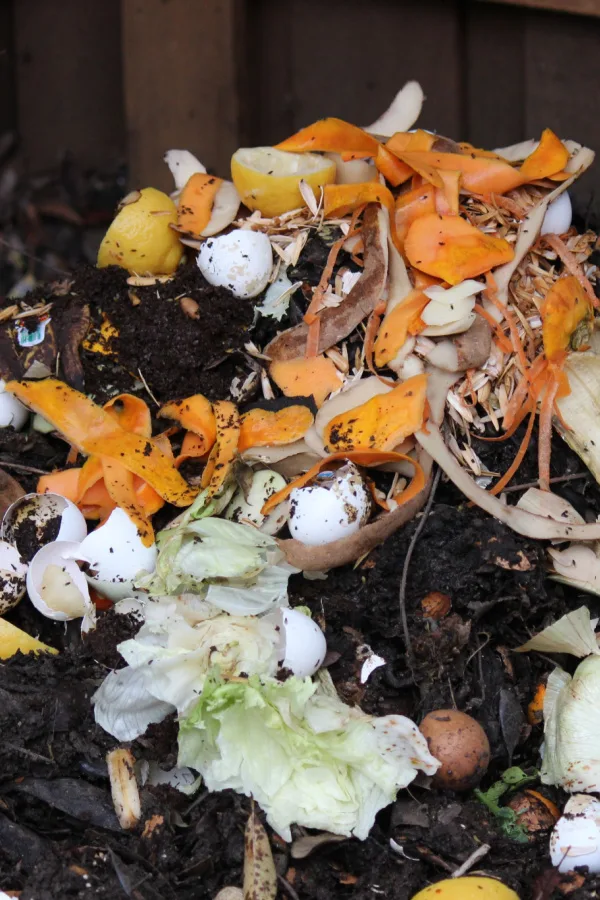
All items break down eventually; however, you shouldn’t include everything in a home compost pile. In fact, you can actually harm your future plants if you aren’t careful. If your finished compost includes the below “do not include” garden and flowerbed materials, your next season plants might suffer.
In this article, you’ll learn about five things you should avoid including with your compost. With these tips, you’ll be well on your way to making healthy and nutrient-packed “black gold!”
Quick Composting Basics – Things To Avoid Composting From Your Garden & Flowerbeds
Creating an amazing compost pile is really simple when you keep a few tips in mind. Here’s a quick course on the basics. For a more in-depth look into composting, check out “Learn How To Compost Like A Pro.”
First off, a successful pile needs a good mixture of both brown and green materials. In fact, use a simple formula of 1 part green material to 4 parts brown materials. (A breakdown of what materials fall into both of these categories is available in the link above. There are so many materials you can compost – from chicken manure to kitchen scraps to paper towels!)
Second, the smaller the better. Basically, the smaller the pieces are that go into your compost pile, the quicker they can break down and turn into that amazing black gold. Be sure to chop up or cut up larger pieces into smaller sizes.
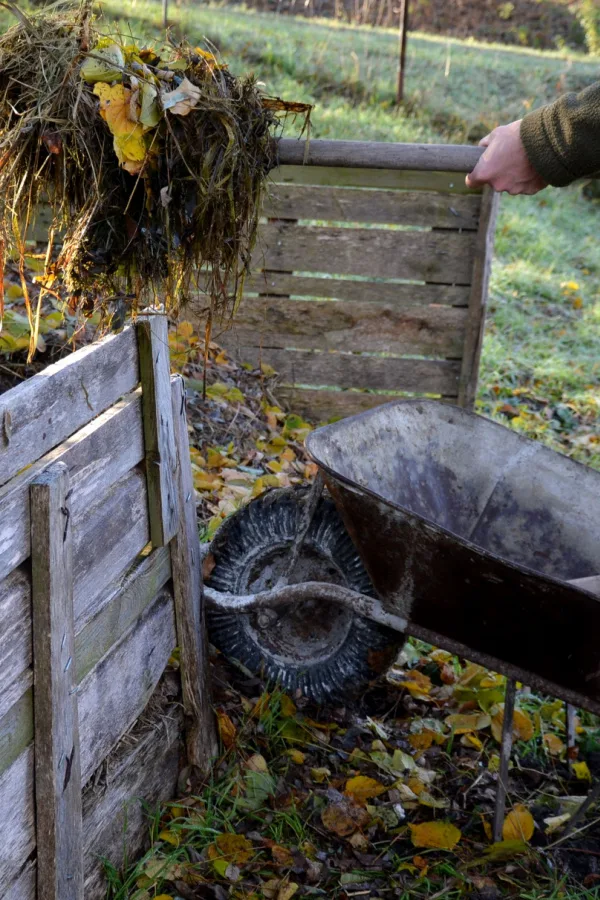
Third, be sure to turn your compost pile at least once a week. The pile needs oxygen in order for the materials to heat up. It also helps the organisms really break down and decompose the materials. Without turning, only the middle of a compost pile will break down, leaving the outer edges untouched.
Lastly, your compost pile also needs moisture. When you keep the materials moist, they can really heat up – especially in the middle of piles. The middle should feel like a damp sponge.
Now that the basics are covered, let’s get into what you don’t want to include in home compost piles.
The 5 Things To Avoid Composting From Your Garden and Flowerbeds
1. Tomato Plants
While most of your garden vegetable plants can be added to compost piles, tomato plants are one you should avoid.
One of the most popular crops for home gardeners are tomato plants, a member of the nightshade family. Unfortunately, tomatoes are also of the worst targets for having diseases and other issues associated with them.
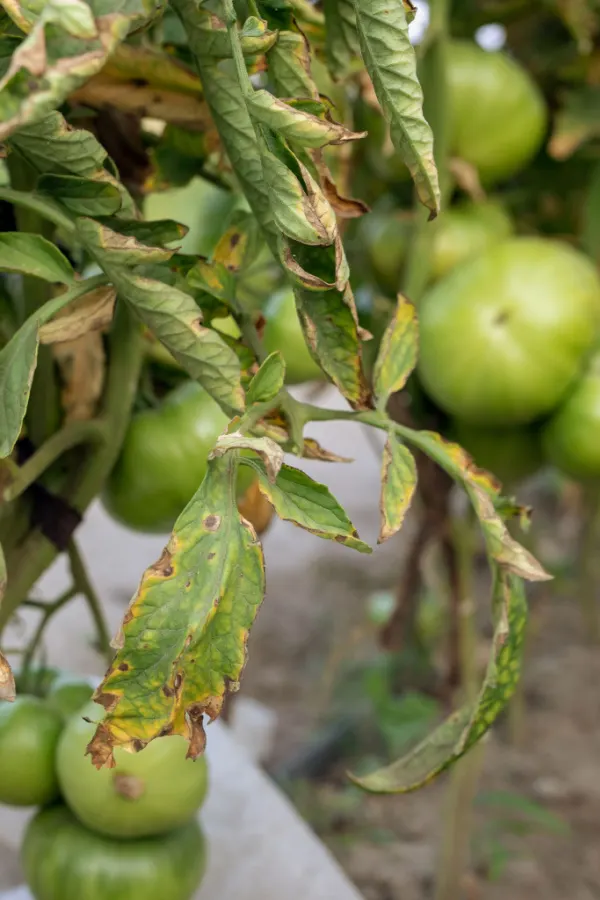
From mildew, blight, or a whole slew of other issues, home compost piles just aren’t able to get hot enough to kill off these unwanted bacteria, spores, and pathogens. (For tips on creating a hotter compost pile, check out “How To Make A Compost Pile Get hot.”)
In addition, tomato stems are very thick and fibrous. They take a long time to break down and turn into something desirable to work with.
It’s also really easy to miss a stray tomato fruit when cleaning out the garden in the fall. Once you use the compost in your garden the following year, it will likely leave you with volunteer tomatoes growing in unwanted places.
For best results, leave the tomato plants out of the compost pile altogether – Even if your plants seem healthy and strong at the end of the growing season.
2. Pepper Plants – Things To Avoid Composting From Your Garden
Similarly to tomato plants, you should also not include pepper plants in home compost piles. They are a member of the nightshade family and have a tendency to harbor and transmit diseases.
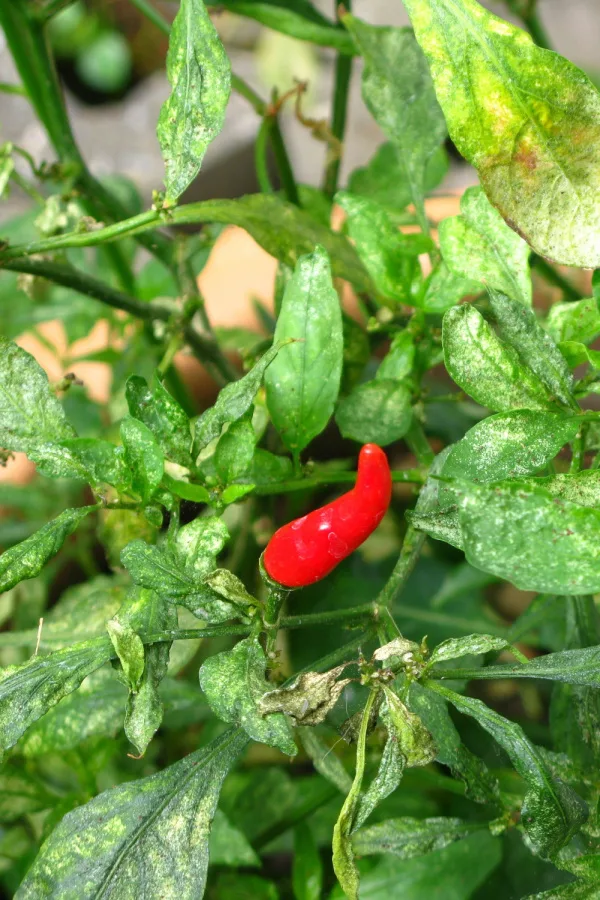
In addition to the diseases, tomato and pepper plants are susceptible to pest issues. Grubs, fruit flies, ants, earwigs, and other pests can all take up residence in your compost pile by hitching a ride on discarded plants.
Then, when you go to add the compost to your new garden and flowerbeds next year, you are introducing these diseases and pests right back into the soil.
3. Diseased Fruit or Foliage – Things To Avoid Composting From Your Garden
This pertains to any fruit, flower, or vegetable from your property. You should not add any part of the plant or fruit that is diseased to compost piles. You are simply taking the chance that whatever disease or issue that is plaguing the current plants will contaminate your entire compost pile.
Unfortunately, you likely won’t even realize you have an issue next year with the finished compost until it’s too late. As you go to add your compost to your garden soil for the next growing season, you’ve just given those diseases a head start. Gardening and battling pests and diseases can be hard enough at times – Don’t make it harder by using contaminated fruit or foliage!
4. Flower Heads – Things To Avoid Composting From Your Flowerbeds
Before adding any of your pulled flowers or flower trimmings to your compost pile, take the extra time to cut the flower heads off of the stalks. The flower head is where the seeds are stored. By cutting off the seed head, you are removing the chances that those seeds will be “planted” in the compost pile.
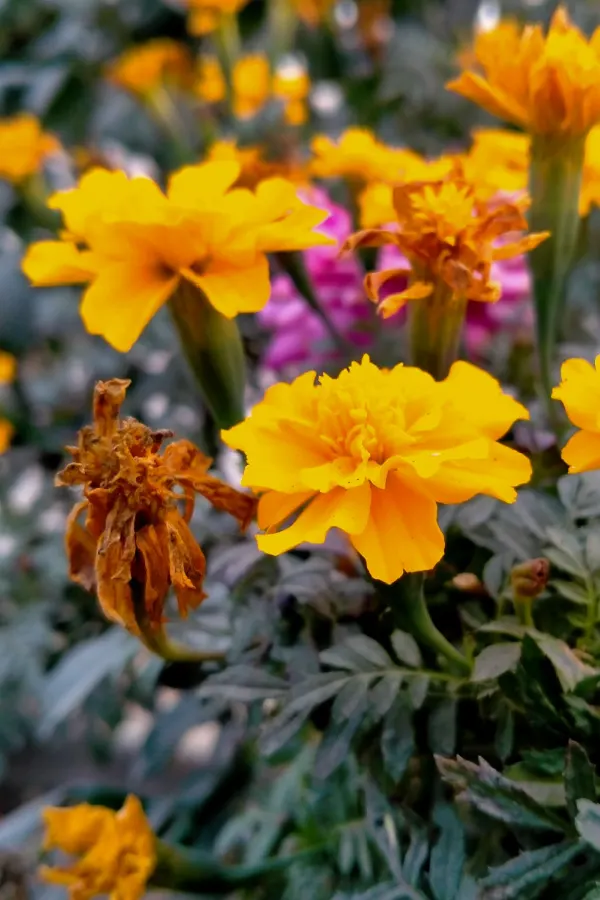
Even though the flowers are no longer attached and growing on the plant while in the soil, the seeds still have the capability to germinate and grow in the compost.
Just think about it: Your compost pile is the perfect place for seeds to germinate. It has tons of vital nutrients, slightly moist conditions, and plenty of organic matter. It’s primed for growing new seeds! And home compost piles just don’t get hot enough to kill off the seeds.
Not only can you have seeds growing in the compost as it sits in your bins, but as you go to spread the compost out over your garden or flowerbed soil the following year, those seeds might still be waiting dormant. As you mix the compost with your soil, you are essentially “planting” those seeds – and they likely will not end up where you want them to be planted!
5. Fruit & Vegetable Seed Cores – Things To Avoid Composting From Your Garden
Similarly to flower heads, you also want to remove the fruit and vegetable seed cores. While it takes a little extra work and time, it will save you in the long run from dealing with volunteer plants popping up all over your garden and flowerbeds.
Simply remove the seed core before composting the rest of the fruit or vegetable. The rest of the fruit and vegetables are completely fine to add to compost piles. Just be sure to break them down into smaller pieces before adding. (For example, consider the amount of time it will take for an entire watermelon rind to break down as opposed to smaller chunks.)
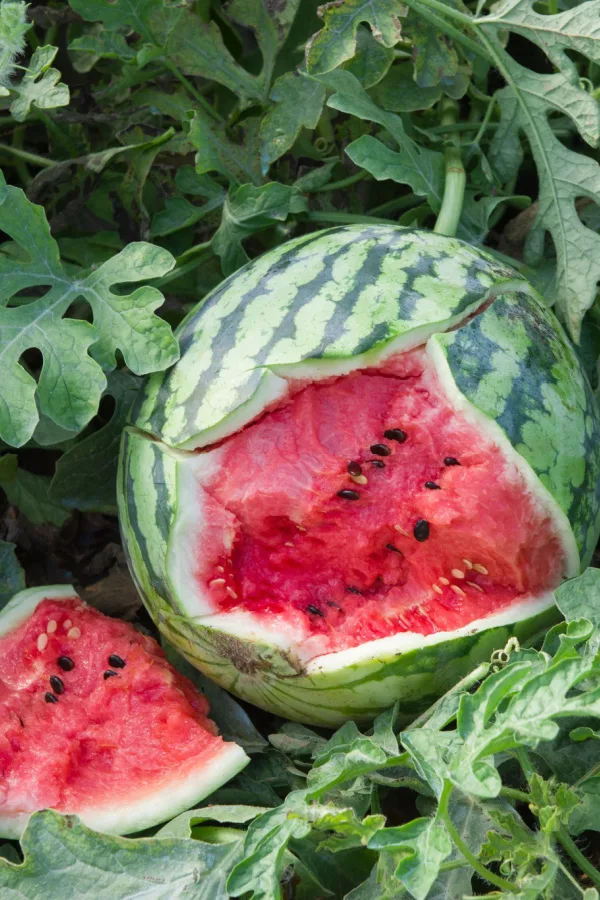
If you do end up with plants that are growing from the compost pile, it’s likely that the plants won’t be “true” since many garden crops are hybrids (i.e., only open-pollinated plant varieties will produce the same exact offspring via their seeds). In truth, the fruit or vegetables that those volunteers produce have a chance of not being very flavourful and useful.
Hopefully, by following these simple tips of what NOT to add to your compost pile from your garden and flowerbeds, you will be on your way to creating amazing compost – That wonderful black gold that will help to power your plants and flower for the next growing season!
Follow Our Facebook Page For Even More Great Tips! Simple Garden Life Facebook Page
Simple Garden Life is a website dedicated to keeping gardening fun, simple and enjoyable! We publish two new articles each week along with a new garden podcast episode every two weeks. This article may contain affiliate links.
